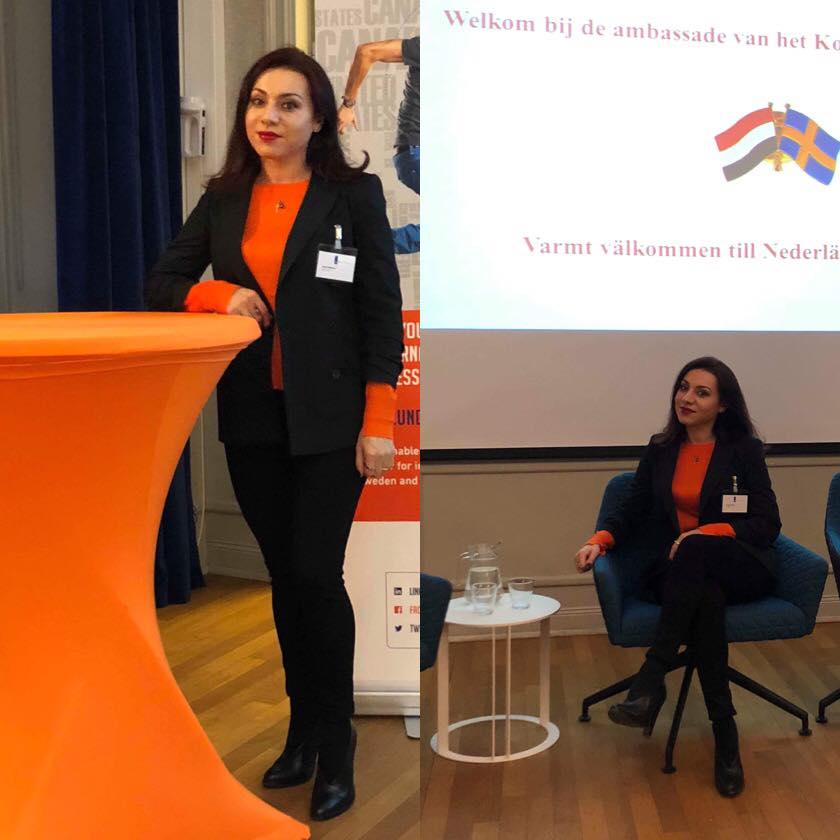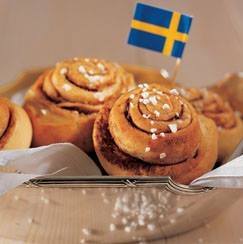During the panel discussion about “Cultural differences” with presence and the participation of H.E. Mrs. Ines Coppoolse, Ambassador of the Netherlands to Sweden we discussed if there is a big difference between Sweden and the Netherlands?

There´s not much distance between Sweden and the Netherlands, but there is a big difference in the way these two countries do business. The Netherlands may be a small country in size, but certainly not in impact. The Netherlands is famed for its liberal policies, maritime trading traditions, robust multiculturalism and leading technological communications, making Dutch lifestyle a mosaic of cultural intrigue.
When moving from the Sweden to the Netherlands for work or vise versa, it´s important in the first few weeks or month to understand the differences between these two cultures to ensure you´re observing the traditions and not making any missteps.
Food and drinks in business culture

Fika is a Swedish word for a coffee break that Swedes prefer not to translated it, as they don´t want to lose
significance of fika. It´s a social phenomenon, a legitimate reason to set aside a moment of quality time, relaxing and enjoying life.
Coffee or tea is always paired with something sweet, mostly with the famous Swedish cinnamon bun but also with cookies, cakes , even open-faced sandwiches pass as acceptable fika fare.
Fika can happen anytime, morning as well as evening, at home or at work and in a cafe. Sweden is among the top consumers of coffee and sweets in the world, because Swedes appreciate the good things in life.
When in Sweden, never skip on fika as it´s part of life!
As for lunch, in Duch business culture, lunch could be just a simple sandwich at your desk, meanwhile in Sweden it is something of an event, a hot meal with a company of colleagues or business partners. In fact, some of the best deals are made over lunch, though it`s often the result of multiple friendly meetings.
So yes, even lunch in Sweden is different than lunch in the Netherlands!
Family first
Family comes first in Sweden and the parental leave it has the most generous policies in the world. Parens receive 480 days of leave total, often decided evenly between both parents, though one of the parents must take at least 90 days. The country also offers temporary parental benefits of care of sick children (VAB), in which up to 120 days per year one parent can stay home with a child and receive compensation.
The Netherlands doesn’t have emergency leave that can be used when a child is sick. The length of time you can take emergency leave is a few hours or a few days only. Any longer it is deemed short-term leave, which lasts no more than twice the number of hours you work weekly in a 12-month period.
Working hours in Sweden and the Netherlands
The Dutch are more likely to spend evenings at work or agree to overtime, but Swedish employees would rather go home. There was an experiment performed in Gothenburg, were workers worked six-hour days instead of 8. The results showed that the workers were happier and healthier. in fact, in July in Sweden, many businesses are closed for entire month for the annual five-week-long holiday.
The Swedish like to get things done efficiently and leave the office at around 15:00, while the Dutch are more likely to linger in hallways and chat with colleagues.
Is Sweden more international than the Netherlands?
The Netherlands won the title in the battle with various Scandinavian countries to be the European leader in English proficiency, according to the EF English Proficiency Index. in 2016 and Sweden landed the third.
Both countries offer a high level of English, but there are more English-speaking companies in the Netherlands than in Sweden, with many global companies choosing Dutch cities for their headquarters. IKEA, for example, is headquartered in Delft. Expats looking for a truly international experience may thrive in the Netherlands, but those who enjoy the traditions of Sweden and more relaxing business culture may find Sweden the best fit for business.
